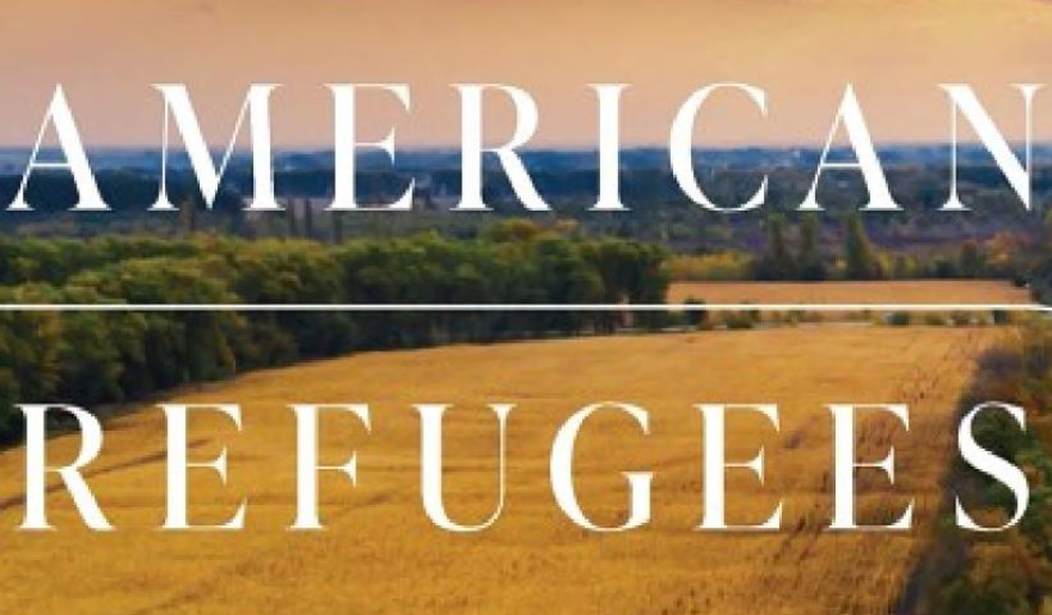It all began on June 1, 2018, when my wife, daughter, and I decamped Los Angeles for Nashville, Tennessee.
We had had enough.
Our semi-glamorous Hollywood Hills home wasn’t seeming so semi-glamorous anymore with homeless trudging down from Mulholland Drive every morning, making it a treacherous experience to walk the dog.
Nor was it a particularly exhilarating experience to drive through the city—for work, play, or groceries, your children next to you—to see the drug-addled crouched in doorways, defecating.
This wasn’t exactly “California Dreamin’” anymore.
Moreover, having jumped ship from knee-jerk movie business liberalism by co-founding and becoming CEO of this very company, Pajamas Media (now PJ Media), I not only had lost most of my old friends, but had received in my mailbox the ominous scrawled missive, “We know where you live!”
It was time to go, but the question was where?
I was partial to Charleston, South Carolina, my wife and daughter, country music fans, to Nashville, so I was outvoted.
We also chose it because my wife and I had spent our lives as novelists and screenwriters and wanted a creative city.
But the truth is, though we had visited, we didn’t know much about the place.
We were blindly and optimistically fleeing the bluest of blue states for a red state.
To say there were surprises is an understatement.
And that is why it took me over five years to write “American Refugees: The Untold Story of the Mass Migration from Blue States to Red States.”
This is an experiential book, not data-driven, so I had to live it first. I am a “write what you know” guy, even for my series of detective novels.
The first surprise, after living most of my life in L. A. and New York, was that everybody was so nice. Initially, I almost thought it was a trick.
The bigger shock was just how blue the city of Nashville itself was. Nashville, Memphis, Knoxville, and Chattanooga are blue islands in red Tennessee.
Naïve me, I had thought Music City to have been more or less purple. It turned out that meetings of its Metro Council were more like gatherings of a “woke” politburo on steroids.
But it wasn’t all that. A few miles out of Nashville it was becoming increasingly more red.
Or was it? The demography was complicated.
Even places like neighboring Franklin, Tennessee—something of a Republican dreamland; Norman Rockwell meets sushi bars—were at play.
Our friends on the left were hell-bent on turning the red states blue. You could see it everywhere. It was a battle of the yard signs at election time.
(My book deals primarily with Tennessee but also has chapters on Texas, Georgia, and Florida.)
Which brings me to the story of the “refugees” and what their role was and is.
It was originally assumed that those of us coming from blue America were motivated by cheaper living (tax savings) and were to be looked at suspiciously because we would pollute red state nirvana with our innate “California values.”
While true of a few, this preconception was, in my observation, wildly off base.
Who doesn’t want to save on taxes? But moving across America is a huge undertaking that usually takes more motivation than saving a few bucks that may disappear in the cost of the move anyway.
Many that I met were strong constitutionalists searching for a lost, loved America and hoping they would find it in red states.
They were often, as I learned, more constitutionalist, often more MAGA too, than the denizens of the red states themselves.
Is this really surprising? It’s worth noting California, due to its size, had more Trump voters in 2020 than any other state.
Who would then be the people who bothered to make the cross-country trek to be those new American refugees, recapitulating the refugees of old (legal only) that built our country?
In my book I call them a cavalry—on SUVs, not horses—come to save the red states from themselves.
Now, this isn’t always true. As the cliché goes, “It’s complicated.”
Whatever the case, they are confronted by entrenched politicians, a fair number of whom are titularly Southern Republicans but often resemble the old Southern Democrats in new clothes.
This has created a conflict, a kulturkampf, in which both sides, of necessity, are reluctantly changing and maybe even growing.
One thing the old guard insists, with justification, is they were the ones who turned Tennessee, and other red states, red in the first place.
Aren’t you renegade blue staters just a bunch of buttinskies?
I try to puzzle this all out in “American Refugees.”
Overall, I deem moving in my book a positive experience, perhaps most importantly because so many in red America are devoted to God, as opposed to blue where He is largely ignored.
That part, above all others, changed me.
Factor in author bias, if you will, but I have endeavored to make this book fun to read in this grim age.
By way of what Norman Mailer used to call “Advertisements for Myself,” I should say “American Refugees” has already received overly kind words from Tucker Carlson, John Rich, Vivek Ramaswamy, Gordon Chang, and Lee Smith, the majority, if not all, of whom are familiar to PJM readers. You can read their words here.
And if you buy the book and would like me to spot you to a beer (no Bud Light) or even a shot or two of Woodford Reserve, please leave a five-star review on Amazon.
One thing is for sure. Despite this being my fourteenth book, and despite my having written for and been reviewed by that publication numerous times in my distant liberal past, as a conservative, the New York Times will not be reviewing this book.









Join the conversation as a VIP Member